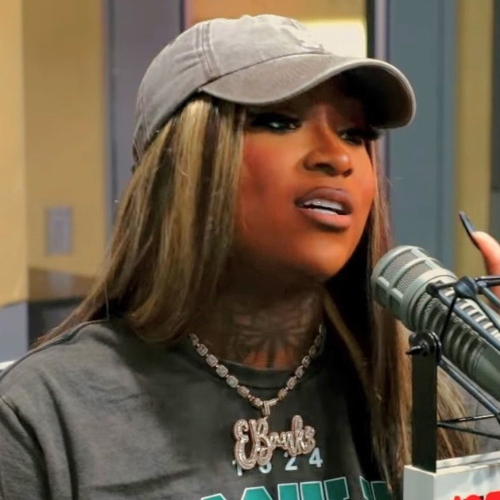From small-town country days to ruling the pop universe—if there’s a blueprint for evolving as a songwriter, Taylor Swift probably scribbled notes in the margins and then tossed it out the window. She’s built her legend by turning the inside-out pages of her life into lines fans tattoo on their arms (and, at the very least, hum all day). It’s the details—tiny heartbreaks, glimpses of hope, even those moments you hardly notice in real time—that somehow feel deeply, weirdly universal after she’s sung about them. Not many can zoom in and make stories feel this specific, yet still wind up writing the soundtrack for millions. But Swift? She’s turned that trick into an art form.
Her journey as a songwriter doesn’t really play by the book, either. Think about how her confessional lyrics sparked everything from acoustic covers to academic lectures. Over 200 million records, that sea of trophies—those don’t come from playing it safe. The woman’s lyrical sharpness has roped critics and radio listeners in at the exact same time, which, let’s face it, is no small feat in pop.
So why do these songs cling so stubbornly to your memory? There’s a sneaky kind of alchemy at work. One line drops and suddenly you’re back in your cringiest breakup, or grinning at the memory of that one windows-down joyride, or quietly reliving something you mostly try not to think about. Maybe that’s why people use her music at everything from graduation parties to the hungover aftermath—there’s a line, somewhere, that fits just right.
Taylor Swift’s Lyrical Evolution, Up Close
Rewind a bit. Remember the early Taylor—the one spinning country tales steeped in teenage angst and hope? It was all there: lyrics about first love going sideways and missing the high school bus. She slipped confessions like “And you come away with a great little story / Of a mess of a dreamer with the nerve to adore you” into her debut, and fans, well, they lined up behind her, Kleenex in hand.
Then came *Fearless* and the diary turned into a highlight reel. “Fifteen” feels both raw and gentle, a shimmering nod to all-out naiveté: “‘Cause when you’re fifteen and somebody tells you they love you / You’re gonna believe them.” If you haven’t shouted that chorus in your car, odds are you’re lying.
With *Speak Now*, she stopped just jotting feelings and started firing back a little. Look at “Dear John”—the one with finger-pointing and fireworks and still-whispered rumors about John Mayer. “But I took your matches before fire could catch me…” Taylor didn’t just spill secrets—she handed us an anthem built for sitting with your regrets (or maybe setting them on fire).
| Album Era | Lyrical Themes | Notable Songs | Chart Performance |
|---|---|---|---|
| Taylor Swift (2006) | Young love, heartbreak, teenage experiences | Cold as You, Our Song | Peak #5 Billboard 200 |
| Fearless (2008) | Coming of age, self-discovery, hope | Fifteen, You Belong With Me | 11 weeks at #1 Billboard 200 |
| 1989 (2014) | Self-awareness, media scrutiny, empowerment | Blank Space, Shake It Off | 11 weeks at #1 Billboard 200 |
| folklore (2020) | Introspection, storytelling, mature love | cardigan, august | 8 weeks at #1 Billboard 200 |
Metaphors the Taylor Way
You don’t have to look hard to spot Taylor’s real genius with imagery. The *1989* era—peak pop, glitziest vibes—served us “Blank Space,” a track that winked and side-eyed at her own tabloid drama. “Got a long list of ex-lovers / They’ll tell you I’m insane”—it’s just as catchy as it is self-knowing, and she pulls it off without sounding defensive.
Tongue-in-cheek lyrics quickly became her kind of calling card. Sure, “Shake It Off” is a self-esteem pep talk on the surface, but a closer listen throws you under the microscope with her. Every hook is layered—easy to shout, but sharper than it first lets on. That’s a big part of why fans—and even those rolling their eyes—always circle back.
The little things most folks wouldn’t even register (an old cardigan, golden sunlight late in the afternoon) get elevated. She quilts nostalgia from scraps of near-nothing, and in Taylor’s hands, the throwaway details become punch-you-in-the-gut memories. Her music holds up like a Polaroid—instant, fuzzy, unmistakably yours.
Storytelling and Characters: More Than Just Autobiography
Not sure there’s anyone else fitting a whole coming-of-age film into three and a half minutes. Her lyrics sketch out whole scenes—sometimes you swear you can smell the coffee or hear a slammed door. More than just jotting her feelings, Swift has this trick where suddenly you’re not just listening, you’re in the story too.
Her “characters”—sometimes clearly Taylor, sometimes not—age and harden and heal right alongside her. Whether she’s telling on her teenage self or sorting out adulthood, the backbone is always some form of honesty. Maybe that’s why her crowd sticks around, through stylistic left-turns and all.
Her recent shift with albums like *folklore*? Suddenly she’s inventing whole worlds, putting new faces—and heartbreaks—front and center. “When I felt like I was an old cardigan…” There’s a melancholy sweetness to it (funny how a sweater can gut you like that).
Lyrics as Culture
Her songs haven’t just scored high school dances or breakup drives. They sneak into every corner—memes, viral tweets, awkward icebreakers in college English classes. Scroll through Twitter any weekend and watch a Taylor lyric spark arguments or group chats or endless armchair analysis. Not many songwriters spin classroom debates out of pop hits, but there she is, again.
The things she sings about—misread glances, picking yourself back up, moving on—these echo for millennial and Gen Z fans especially. In a world that changes faster than your phone’s notification bar, Taylor’s steady message about resilience and, well, liking yourself anyway, sticks. Try “Bejeweled” for proof: “Puttin’ someone first only works when you’re in their top five / And by the way, I’m going out tonight.” She converts oversharing into a power move, somehow.
Her ripple effect is everywhere. Bedroom pop artists, big-ticket producers, pretty much everybody seems to dip into her school of open-diary songwriting. Thanks to her, pop ditched the old “catchy but empty” reputation and started aiming sharper.
Going Deeper: Taylor’s Lately
More recent Taylor? She’s gone full-on introspective, with lyrics that feel a little more grown, dusted with indie-folk quirks. On “Lover,” you get a completely different kind of love song. “At every table, I’ll save you a seat”—not exactly wild party stuff, but there’s a world of meaning packed in those words.
She refuses to settle into one voice, either. Different perspectives, shifting timelines—sometimes she’s the main character, sometimes she’s just the narrator. The best part? It’s never just autobiography anymore; it’s a blend of fiction, memory, and something in-between. Keeps things fresh.
Swifties, of course, treat every line like a puzzle: hidden references, emotional callbacks, Easter eggs tucked into bridges. It’s a two-way street, fans and Taylor volleying secrets back and forth. Listen to “Daylight”—”I once believed love would be burning red, but it’s golden, like daylight”—and try not to hear a whole new way of seeing the world.
Final Thoughts
Taylor Swift isn’t just hanging around pop’s upper tier. She’s rewritten the rules, showing you can be both a radio heavyweight and a genuine wordsmith. Something about her songs burrows in and stays; they don’t let go after a single chorus.
She’ll keep experimenting—and her fanbase will happily hunt through every line for secret meanings. Even as the trends shift and the spotlight moves, people circle back to her words. In a world that sometimes mistakes spectacle for substance, Taylor’s focus on story and sincerity keeps sticking out.
Maybe that’s the magic: no matter how massive or small the story, she finds a way to spin it so precisely that it could only be hers, but—somehow—it’s yours too. She reminds everyone that truth and artistry still matter in music, and that somewhere out there, the right lyric can still change the way you see things. And really, isn’t that what keeps us lining up for each new album?











